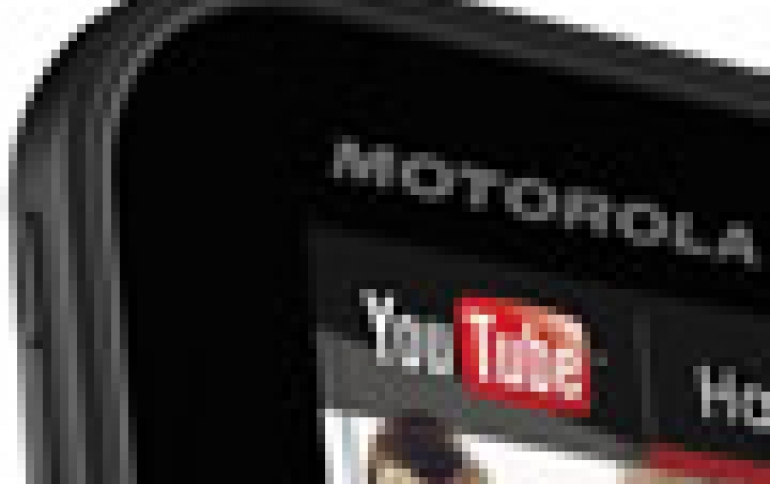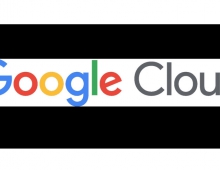
EU, US Approve Acquisition of Motorola by Google
The European Commission and the U.S. Department of Justice have cleared the proposed acquisition of Motorola Mobility, a developer of smartphones and tablets, by Google.
The European Commission said it approved the transaction mainly because it would not significantly modify the market situation in respect of operating systems and patents for these devices.
"We have approved the acquisition of Motorola Mobility by Google because, upon careful examination, this transaction does not itself raise competition issues. Of course, the Commission will continue to keep a close eye on the behaviour of all market players in the sector, particularly the increasingly strategic use of patents", said Joaquin Almunia, Commission Vice President in charge of competition policy.
The Commission considered whether Google would be likely to prevent Motorola's competitors from using Google's Android operating system. The Commission's investigation showed Android helps to drive the spread of Google's other services. Consequently, given that Google's core business model is to push its online and mobile services and software to the widest possible audience, it is unlikely that Google would restrict the use of Android solely to Motorola, a minor player in the European Economic Area (EEA), as compared to operators such as Samsung and HTC.
Motorola, as some other market participants, holds patents that are essential for 3G or 4G/LTE standards to operate. Access to such "standard essential" patents is therefore crucial for players on the smartphone market. However, the Commission concluded that the proposed transaction would not significantly change the existing market situation in this respect.
Finally, the Commission also examined whether Google would be in a position to use Motorola's standard essential patents to obtain preferential treatment for its services, including search and advertising. The Commission found that Google already had many ways in which to incentivise customers to take up its services and that the acquisition of Motorola would not materially change this.
Google plans to spend $12.5 billion on buying mobile handset maker Motorola Mobility.
The companies also need approval from Chinese regulators, who are expected to decide by March 20.
Regulators in Israel and Taiwan also have not yet signed off on the deal.
The U.S. Department of Justice's Antitrust Division also announced the closing of its investigations into Google's acquisition of Motorola Mobility. DoJ also closed inverstigations into acquisition of Apple, Microsoft and Research in Motion of certain Nortel Networks Corporation patents, and the acquisition by Apple of certain Novell Inc. patents.
"After a thorough review of the proposed transactions, the Antitrust Division has determined that each acquisition is unlikely to substantially lessen competition and has closed these three investigations. In all of the transactions, the division conducted an in-depth analysis into the potential ability and incentives of the acquiring firms to use the patents they proposed acquiring to foreclose competitors. In particular, the division focused on standard essential patents (SEPs) that Motorola Mobility and Nortel had committed to license to industry participants through their participation in standard-setting organizations (SSOs). The division?s investigations focused on whether the acquiring firms could use these patents to raise rivals? costs or foreclose competition.
"The division concluded that the specific transactions at issue are not likely to significantly change existing market dynamics," U.S. Justice Department said.
However, during the course of the DoJ's investigation, several of the principal competitors, including Google, Apple and Microsoft, made commitments concerning their SEP licensing policies.
"The division's concerns about the potential anticompetitive use of SEPs was lessened by the clear commitments by Apple and Microsoft to license SEPs on fair, reasonable and non-discriminatory terms, as well as their commitments not to seek injunctions in disputes involving SEPs. Google?s commitments were more ambiguous and do not provide the same direct confirmation of its SEP licensing policies," the DoJ said.
Rockstar Bidco, a partnership that includes, among others, RIM, Microsoft and Apple, was formed to acquire patents at the June 2011 Nortel bankruptcy auction, and to license and distribute them to certain partners. Nortel?s portfolio of approximately 6,000 patents and patent applications includes many SEPs that Nortel committed to license through its participation in SSOs and that are relevant to wireless devices (the Nortel SEPs).
Apple also proposed to acquire patents held by CPTN Holdings LLC, formerly owned by Novell, following CPTN's acquisition in April 2011 of those patents on behalf of Apple, Oracle Corporation and EMC Corporation. As a member of the Open Invention Network (OIN), Novell committed to cross-license its patents on a royalty-free basis for use in the open source "Linux system," a defined term in the OIN.
"We have approved the acquisition of Motorola Mobility by Google because, upon careful examination, this transaction does not itself raise competition issues. Of course, the Commission will continue to keep a close eye on the behaviour of all market players in the sector, particularly the increasingly strategic use of patents", said Joaquin Almunia, Commission Vice President in charge of competition policy.
The Commission considered whether Google would be likely to prevent Motorola's competitors from using Google's Android operating system. The Commission's investigation showed Android helps to drive the spread of Google's other services. Consequently, given that Google's core business model is to push its online and mobile services and software to the widest possible audience, it is unlikely that Google would restrict the use of Android solely to Motorola, a minor player in the European Economic Area (EEA), as compared to operators such as Samsung and HTC.
Motorola, as some other market participants, holds patents that are essential for 3G or 4G/LTE standards to operate. Access to such "standard essential" patents is therefore crucial for players on the smartphone market. However, the Commission concluded that the proposed transaction would not significantly change the existing market situation in this respect.
Finally, the Commission also examined whether Google would be in a position to use Motorola's standard essential patents to obtain preferential treatment for its services, including search and advertising. The Commission found that Google already had many ways in which to incentivise customers to take up its services and that the acquisition of Motorola would not materially change this.
Google plans to spend $12.5 billion on buying mobile handset maker Motorola Mobility.
The companies also need approval from Chinese regulators, who are expected to decide by March 20.
Regulators in Israel and Taiwan also have not yet signed off on the deal.
The U.S. Department of Justice's Antitrust Division also announced the closing of its investigations into Google's acquisition of Motorola Mobility. DoJ also closed inverstigations into acquisition of Apple, Microsoft and Research in Motion of certain Nortel Networks Corporation patents, and the acquisition by Apple of certain Novell Inc. patents.
"After a thorough review of the proposed transactions, the Antitrust Division has determined that each acquisition is unlikely to substantially lessen competition and has closed these three investigations. In all of the transactions, the division conducted an in-depth analysis into the potential ability and incentives of the acquiring firms to use the patents they proposed acquiring to foreclose competitors. In particular, the division focused on standard essential patents (SEPs) that Motorola Mobility and Nortel had committed to license to industry participants through their participation in standard-setting organizations (SSOs). The division?s investigations focused on whether the acquiring firms could use these patents to raise rivals? costs or foreclose competition.
"The division concluded that the specific transactions at issue are not likely to significantly change existing market dynamics," U.S. Justice Department said.
However, during the course of the DoJ's investigation, several of the principal competitors, including Google, Apple and Microsoft, made commitments concerning their SEP licensing policies.
"The division's concerns about the potential anticompetitive use of SEPs was lessened by the clear commitments by Apple and Microsoft to license SEPs on fair, reasonable and non-discriminatory terms, as well as their commitments not to seek injunctions in disputes involving SEPs. Google?s commitments were more ambiguous and do not provide the same direct confirmation of its SEP licensing policies," the DoJ said.
Rockstar Bidco, a partnership that includes, among others, RIM, Microsoft and Apple, was formed to acquire patents at the June 2011 Nortel bankruptcy auction, and to license and distribute them to certain partners. Nortel?s portfolio of approximately 6,000 patents and patent applications includes many SEPs that Nortel committed to license through its participation in SSOs and that are relevant to wireless devices (the Nortel SEPs).
Apple also proposed to acquire patents held by CPTN Holdings LLC, formerly owned by Novell, following CPTN's acquisition in April 2011 of those patents on behalf of Apple, Oracle Corporation and EMC Corporation. As a member of the Open Invention Network (OIN), Novell committed to cross-license its patents on a royalty-free basis for use in the open source "Linux system," a defined term in the OIN.




















